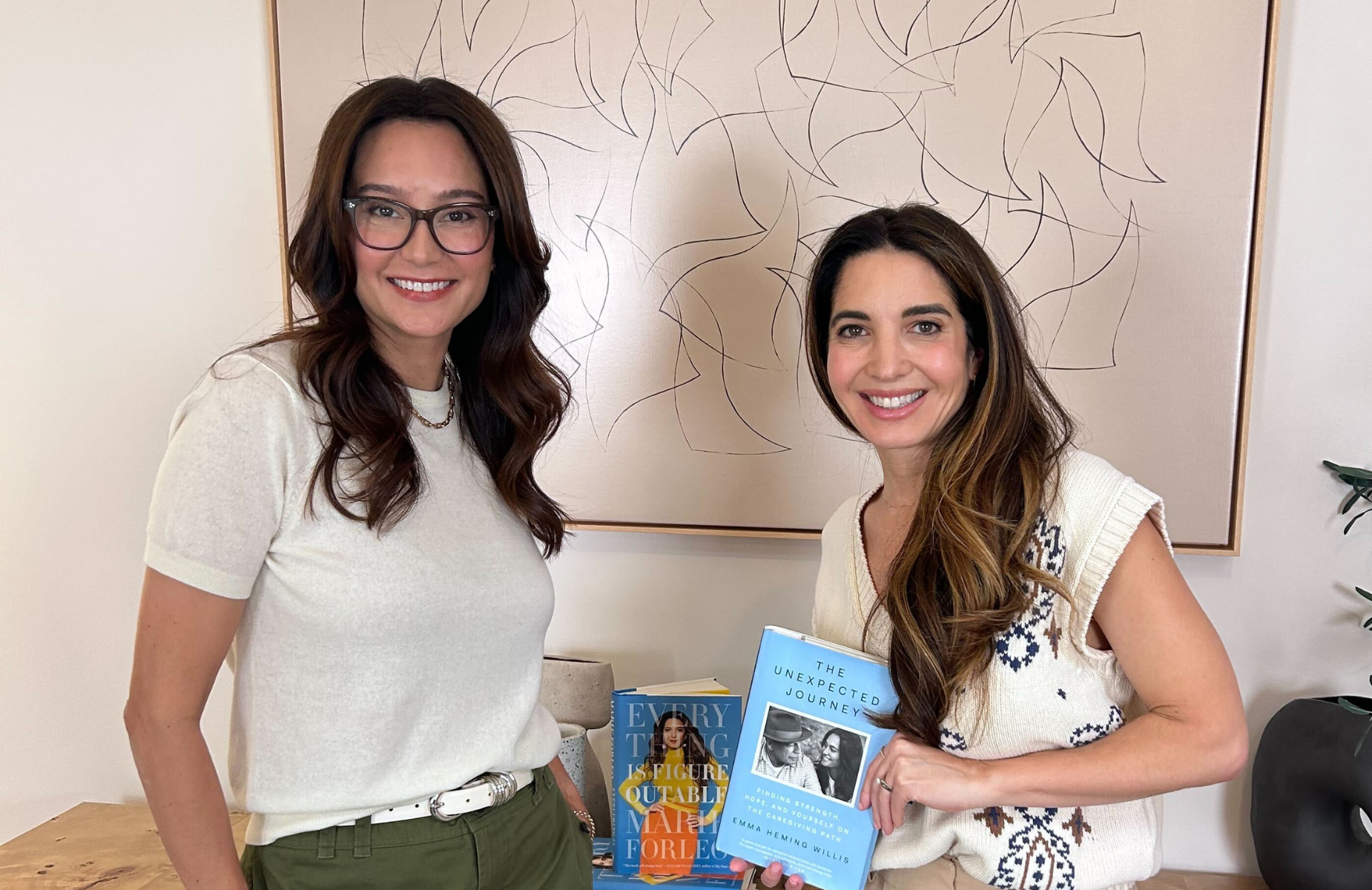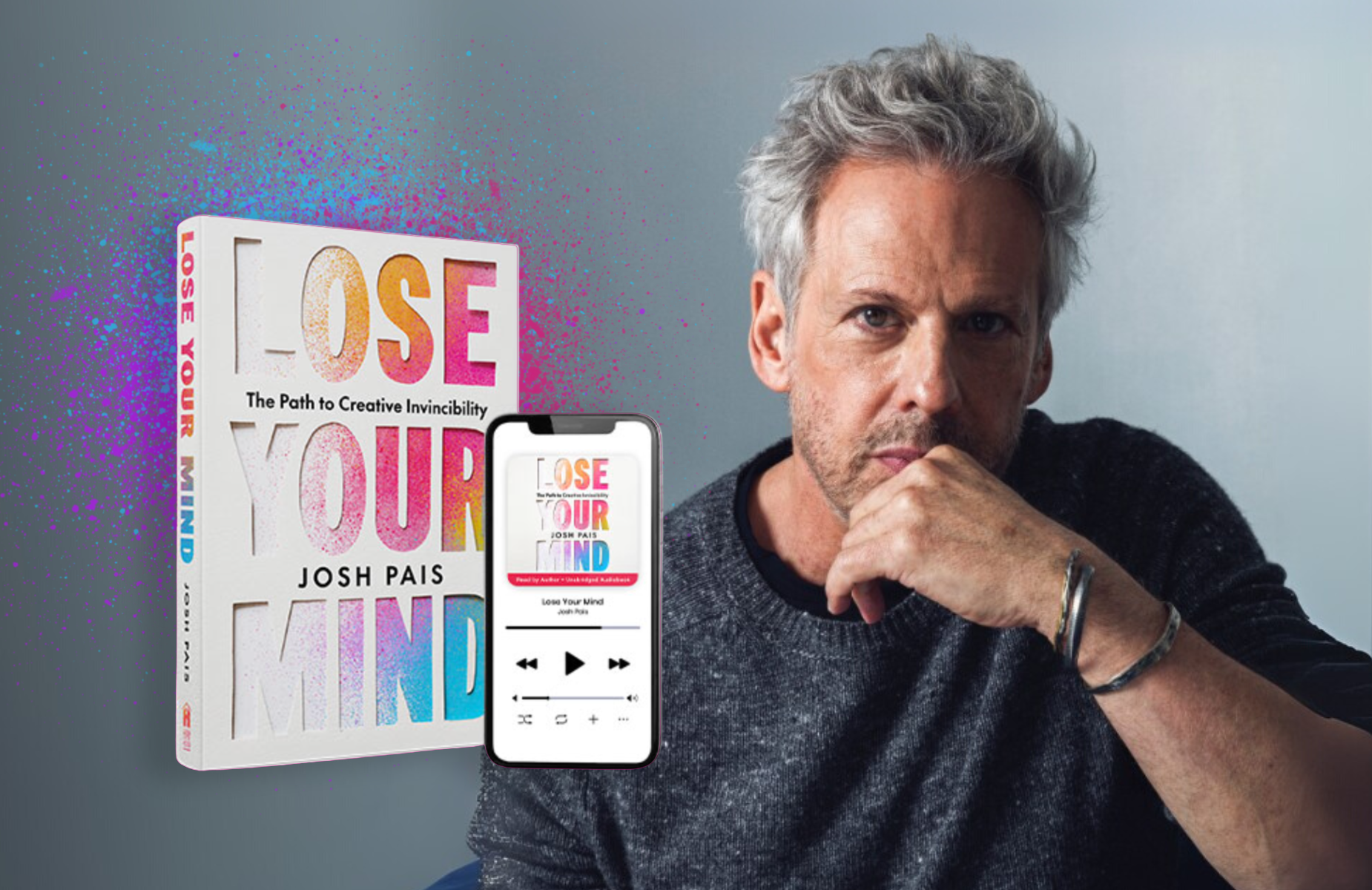Your heart starts racing. It’s hard to breathe. Everything around you starts to spin out of control. And you freeze — feeling like you've completely lost control.
Terrifying, right?
If you’ve ever felt like this — you’re not alone. In fact, anxiety impacts over 40 million adults — and women are twice as likely to be affected. (Myself included!)
But what if I told you that you’re not helpless against anxiety?

Look, I’m not a doctor or a therapist, and I don’t play one on the internet… However, over the years, I’ve put together a simple, five-step process that helps me turn off anxiety and stop panic attacks when they start to hit.
I call it my “5s Toolkit” – and it’s helped me calm down and take back control more times than I can count. These are practical tools that I've personally used to regain control and find my calm amidst the chaos, including:
- How to calm down quickly when anxiety hits in public
- Where to go when you need a panic-proof safe haven
- Easy self-talk tweaks that put you back in control
- The 5-minute exercise that gives hours of relief
- Drug-free treatments that rival antidepressants
- The WORST thing you can do when fighting anxiety
- How to instantly flood your brain with “feel good” chemicals
Watch now and learn 5 science-backed strategies to stop anxiety before it takes over.
Listen to this Episode on the Marie Forleo Podcast
Subscribe to The Marie Forleo Podcast
View Transcript
If you struggle with anxiety from time to time, you are not alone. In fact, anxiety impacts over 40 million of us in the US alone, myself included. That's over 19% of the population. And get this, women are twice as likely to be affected. So, in this video, I'm gonna share five evidence-based tools that can help you feel better fast. I call this my Five S Toolkit. Let's get into it.
Tool number one, self-talk. So, nine times out of ten, when a wave of anxiety hits me, I'm usually alone and out in public. It is not convenient, it is not fun. All of my senses get flooded, and sometimes it feels really scary. Then, the first thing that I do when that happens is I start talking to myself out loud. Now, it's usually in a soft whisper, like barely under my breath, but I can hear it, and I just say a simple phrase again and again.
So I say, "Marie, you're okay. You're okay. You are okay. Marie, you are okay right now. You're going to be okay, and you are okay." So I just say riffs on that simple little phrase on that self-talk on repeat until I can either get myself home or I can get into someplace quiet that's private. And on the rare occasions that I get an anxiety attack at home, I go straight to my bathroom, I close the door, I look in the mirror, and I say those same phrases again and again to myself out loud. And I know that this might sound really silly, but for me, it works wonders.
Turns out that there's research that shows that self-talk, when you do it in the third person, meaning you're saying your name to yourself, it can actually be a very effective method for emotional self-regulation that can reduce anxiety. So, one suggestion for you to consider, make sure that your self-talk is compassionate and encouraging. I like to think about it this way. When I get flooded with anxiety, I just instantly surrender to what I believe is my higher self, my divine self. I just allow her to take over and run the show. And her tone, her energy, it is always clear, it's calm, and it's certain.
Tool number two is go for a stroll. So, for me, this means taking a walk around my neighborhood or maybe even going down by the water. It doesn't matter what the weather is doing, what season it is, often I just need to get outside and move my body. I need to change my biochemistry and give my mind something else to focus on. And the research backs this up.
Did you know that a brisk walk can give you hours of relief, similar to taking an aspirin for a headache? I think that's pretty cool, right? And while studies show that a one-hour nature walk is optimal for calming the amygdala, it's that primitive part of our brain that plays a major role in anxiety. In my experience, any amount of walking helps. So if you can only do five minutes or ten minutes, put on your shoes and go for it.
And if you're someone like me who spends a lot of time in a dense urban environment like New York City, make sure you've got some go-to green spaces that you can just walk to. This way, you don't even have to think about where you should go. You can just get outside and start strolling.
Tool number three is stillness. Did you know that in a clinical trial, meditation was as effective for treating anxiety as Lexapro? I mean, that's miraculous. And it doesn't matter whether you take medication or not because meditation is a tool that I believe belongs in your toolkit. And the reason why is the science at this point is simply undeniable.
You know, another study showed that just a few minutes of meditation every day can reduce anxiety by as much as 39%. And that's for something that just takes a few minutes, totally free, and you can do it anytime, anywhere. And look, I get it. If you're in the middle of an anxiety attack, you might be thinking to yourself like, "There's no way I can sit down and meditate right now. I'm too frigging anxious." However, that is one of the most self-sabotaging thoughts that any of us can have because when we meditate, it's one of the most proven things we can do to help ourselves stop feeling anxious, fast.
And here's what else I think is so powerful. So when you meditate, you literally emit different brainwaves, like you shift from High Beta Waves, which are associated with increased stress and anxiety, and you go down into Alpha and sometimes even Theta Waves, which are shown to decrease anxiety. Now, if you've had trouble with meditation in the past because you can't really sit still or you never know if you're doing it right, I got a little tip for you. Guided meditations they're one of my favorite things to do as somebody with ADHD. They really help me sit down and focus. And if you want some help getting started, I actually created a free 10 minute guided meditation so you and I can practice together. I'm gonna link to it in the description below.
Tool number four is support. In other words, do not suffer alone. For some of us, even admitting that we have anxiety or that we struggle from time to time, dude, that can be so tough because you don't wanna appear weak or vulnerable, and I understand that. However, let me lovingly remind you of my life philosophy. Everything is Figureoutable, including anxiety, and it's often way more figureoutable when we connect with others.
So studies show that social support boosts oxytocin, which stimulates your parasympathetic nervous system, which in turn, ding, ding, ding, decreases anxiety. And getting support can look lots of different ways depending on what feels best for you. So, for instance, if an anxiety attack comes on, you might wanna send a quick text to a friend or a family member, see if they can talk to you for a few minutes, or better yet, go out and take a walk together, even if it's on FaceTime. Or you might consider joining a support group or working with a therapist or calling into a helpline or even reaching out to your doctor. No matter what, you do not have to suffer or struggle alone. There are millions of us that can relate, and you know this in your heart. All of us do better when we connect with others and get support.
Tool number five is sweat. So here is this really wild bit of research. Did you know that people with anxiety tend to be more sedentary and do less intense forms of physical activity if any at all? This, my friends, it's terrible news because movement, meaning just some form of physical exercise where you actually break a sweat, might be the single most powerful non-medical solution we have for treating and preventing anxiety. Now, how exactly does exercise help? Here's how: increasing your heart rate changes your biochemistry. So you start producing these super important anti-anxiety neurochemicals like serotonin and GABA and brain-derived neurotropic factor, also known as BDNF.
Moving your body it lowers muscle tension, right? Which helps you quickly feel less anxious. And exercise also activates your prefrontal cortex. It's that executive thinking part of your brain. And simultaneously it quiets down the amygdala, which is the primitive part of the brain that plays a key role in feeling anxious. And look, science is cool, it's important, but you don't need a frigging research paper to know how good you feel after working up a sweat. And the best news is the type of exercise. It really doesn't matter. So just pick something you enjoy. Whether it's lifting weights, one of my favorites, maybe it's about doing yoga or Pilates or dance or running or swimming, or even going for a bike ride, exercising consistently it is one of the best, most powerful things you can do to treat your anxiety. So whenever in doubt, sweat it out.
And there you have it. The Five S Anxiety Toolkit. Each and every tool is evidence-based, and best of all, you can use them anytime, anywhere. Now, if you like this video, hit that like button and subscribe and make sure you download that free guided meditation. It's linked below.
And if you want even more support, head over to marieforleo.com and sign up to be an MF Insider. Every week I'll send you these short, inspiring and actionable emails that'll help you create a business and life you love. Until next time, stay on your game and keep going for your big dreams because the world really does need that very special gift that only you have.
If you are in crisis, please contact the National Suicide Prevention Hotline at https://suicidepreventionlifeline.org/ or 1-800-273-TALK (8255), or call your local emergency services.
DIVE DEEPER: Grab my 5-minute stress-relief log here. This simple, free tool will help you get out of your head and into action mode so you can focus on what matters — and feel better, fast.
Now it’s your turn. What helps you calm down when a big wave of anxiety hits?
In the comments below, please share what’s worked best for you so we can all help each other live a calmer, anxiety-free life.
No matter what, I want you to know that you’re not alone and you’re not broken.
We're all human. We're messy, brilliant, emotional, love-and-ego-filled creatures doing the very best we can in any given moment.
These tools worked for me, and I hope they help you too. But, most importantly, find what works for YOU so you can tackle anything life throws at you, and keep on going after your big dreams.
xo 💕
 View Comments
View Comments








